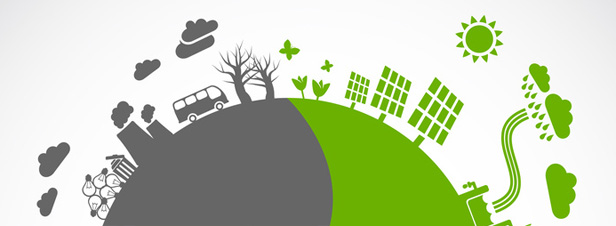There are many case studies on local and regional transitions. Until now, an overview of such case studies was missing. The EU-funded PATHWAYS project has created a database that allows for sharing information from previously done European case studies, in order to foster the reuse of the knowledge gained in previous studies.
There are many case studies on local and regional transitions. Until now, an overview of such case studies was missing. The EU-funded PATHWAYS project has created a database that allows for sharing information of previously done European case studies, in order to foster reuse of the knowledge gained in previous studies.
The PATHWAYS project has explored the possibilities for transitions to a low-carbon, sustainable Europe. The essence of PATHWAYS is that it combines the analysis of different scientific disciplines: integrated assessment modelling, socio-technical transition analysis, and initiative-based learning. By combining and coordinating information from these different disciplines for selected cases, PATHWAYS aims at providing better policy advice for European, Member State and local policy‐makers.
Exploring transition pathways to sustainable, low carbon societies
In order to prevent dangerous climate change and to avoid further loss of biodiversity, the EU has set ambitious policies and strategies to move to sustainable, resource efficient, low-carbon, climate-resilient, and biodiversity rich societies. The PATHWAYS project focused on key objectives of EU sustainability policy (moving towards a sustainable, resource-efficient, low-carbon and climate-resilient Europe). This is intrinsically linked to the success of two key transitions: 1) the energy transition and 2) the land-use transition.
Transition pathways formed the central integrating concept in the PATHWAYS project. Transition pathways have been defined as patterns of changes in socio-technical systems unfolding over time that lead to a fundamental reconfiguration of technologies, business models and production systems, as well as the preferences and behaviour of consumers. The pathways can be characterised by speed (relative to incremental change in existing regimes), depth (degree of radicality of change) and scope (number of dimensions that change in socio-technical systems).
Aim and objectives of the PATHWAYS project
The overall objective of the PATHWAYS project was to provide policy-makers and other key stakeholders with better insight in on-going and necessary transition pathways for key domains relevant for EU policy. PATHWAYS focused on a selected set of transition domains using a combination of linked scientific approaches. The PATHWAYS project had the following concrete specific objectives:
- provide a detailed mapping of key alternative transition pathways ( In terms of its technical, economic, political and social dynamics characteristics).
- better understand the conditions needed for the development of socio-technical systems in a way that is consistent with rapid transitions towards sustainable development goals (the conditions include descriptions of regimes, niches and landscape related to these transitions).
- Explore how insights and activities of key actors can be harnessed (Specifically by analysing how the limitations of current policies can be overcome by a stronger focus on the involvement of different stakeholders)
- link integrated assessment modelling, transition studies and participative action research. In order to create an integrated, interdisciplinary chain of analysis which allows to deepen the understanding of transitions towards sustainable, low carbon societal systems.
- use the findings to inform ‘transition policies’ in the EU (Amongst others in the form of well elaborated scenarios that are based on more realistic descriptions of policies and their impacts).
State-of-the-art innovative research
Deepening (scientific) understanding of how to promote these fundamental and interrelated transitions is crucial for meeting sustainability goals. Different scientific approaches offer insight into these transitions, including integrated assessment models (IAMs), socio-technical transition studies and participative action research. This project aimed to advance the understanding of socio-technical transition pathways, which lead to the emergence of new technologies, institutions, behaviour and values. It is the PATHWAYS approach to do this by better coupling methods and tools of the involved disciplines.
Case study database
In the framework of the project, the PATHWAYS team has compiled a database of relevant case studies on transitions to sustainable low-carbon societies. The case studies that have been collected are on various scales (from city or even neighbourhood level up to national and EU level) in countries throughout Europe. The case studies are in the domains of transitions related to buildings, education, energy, food/agriculture, heat generation, land use/nature, transport, waste/resource management, and water. The database, that includes both case studies developed by the PATHWAYS project and external case studies, is available online on the project website: PATHWAYS Transition case study database. You are invited to contribute your own low-carbon transition pathway case study to the database. Please send an email to pathways@pbl.nl to request a username and password for access.

The case study database is an output of the EU-funded PATHWAYS project.
PATHWAYS
Project details
- Project title: “Exploring transitions pathways to sustainable, low carbon societies” (PATHWAYS)
- Funding scheme: European Union Seventh Framework Programme (EU FP7, grant agreement no. 603942)
- Duration: 3 years (1 December 2013 – 30 November 2016)
- Project coordinator: PBL Netherlands Environmental Assessment Agency
- Project website: www.pathways-project.eu


